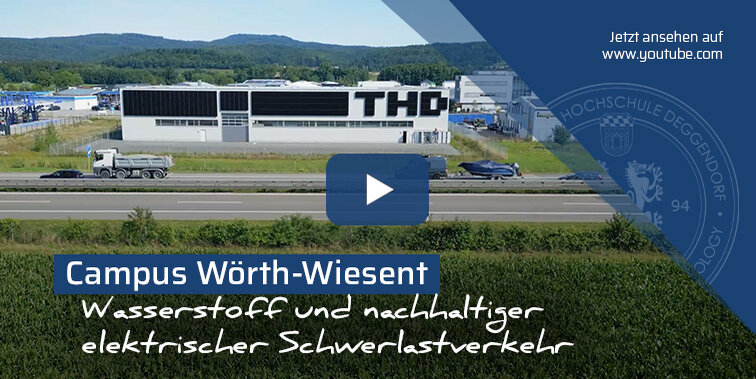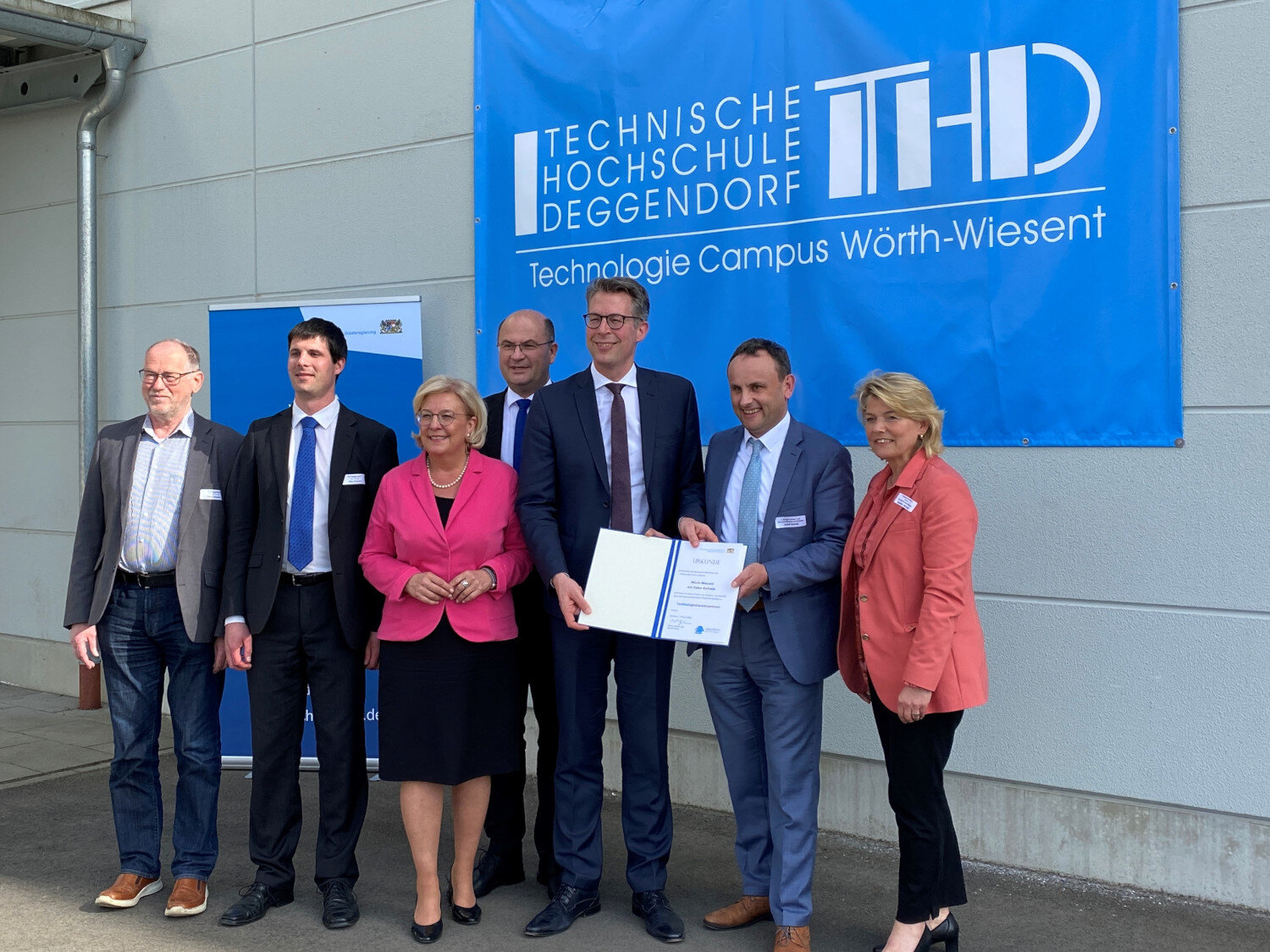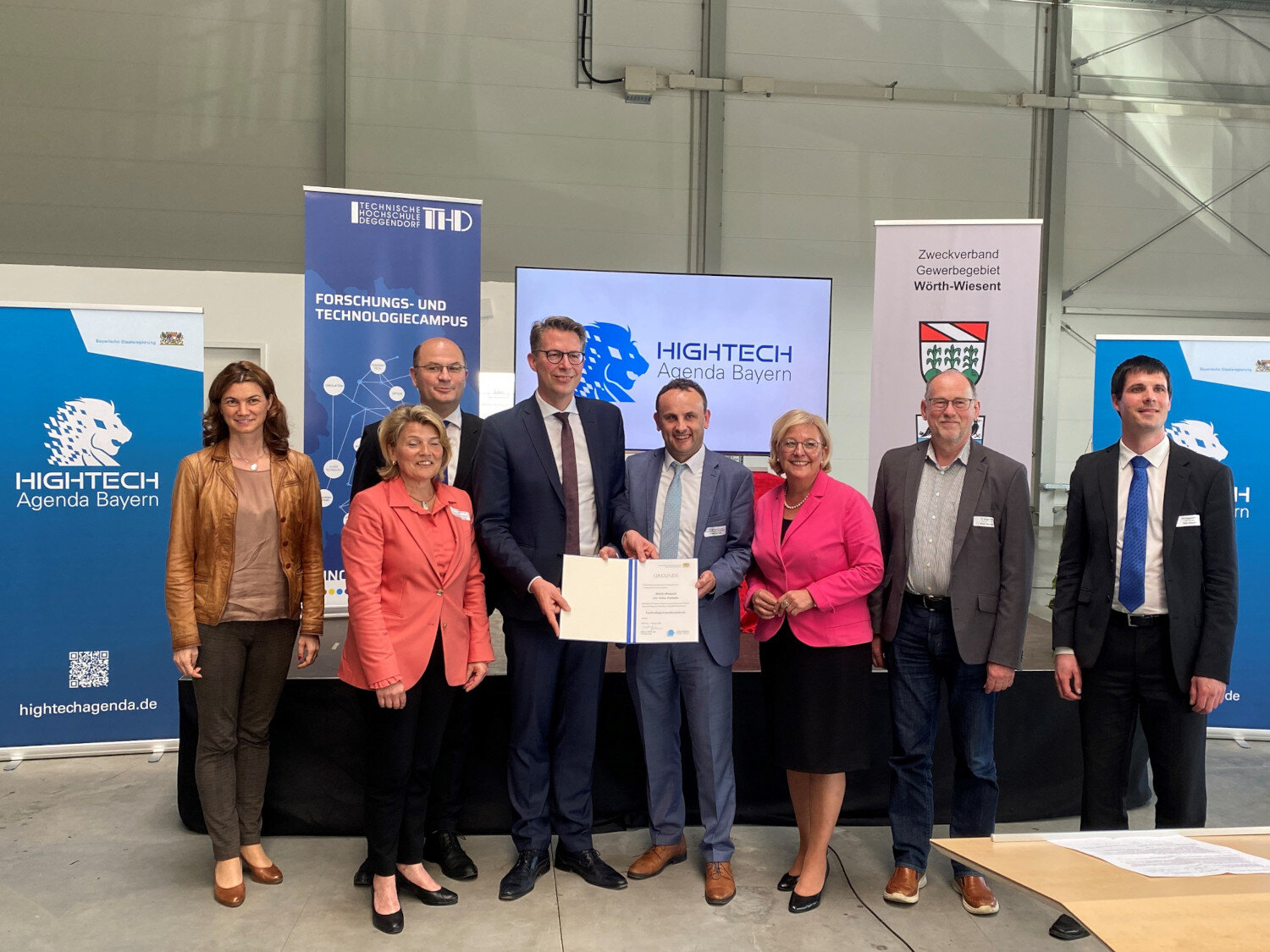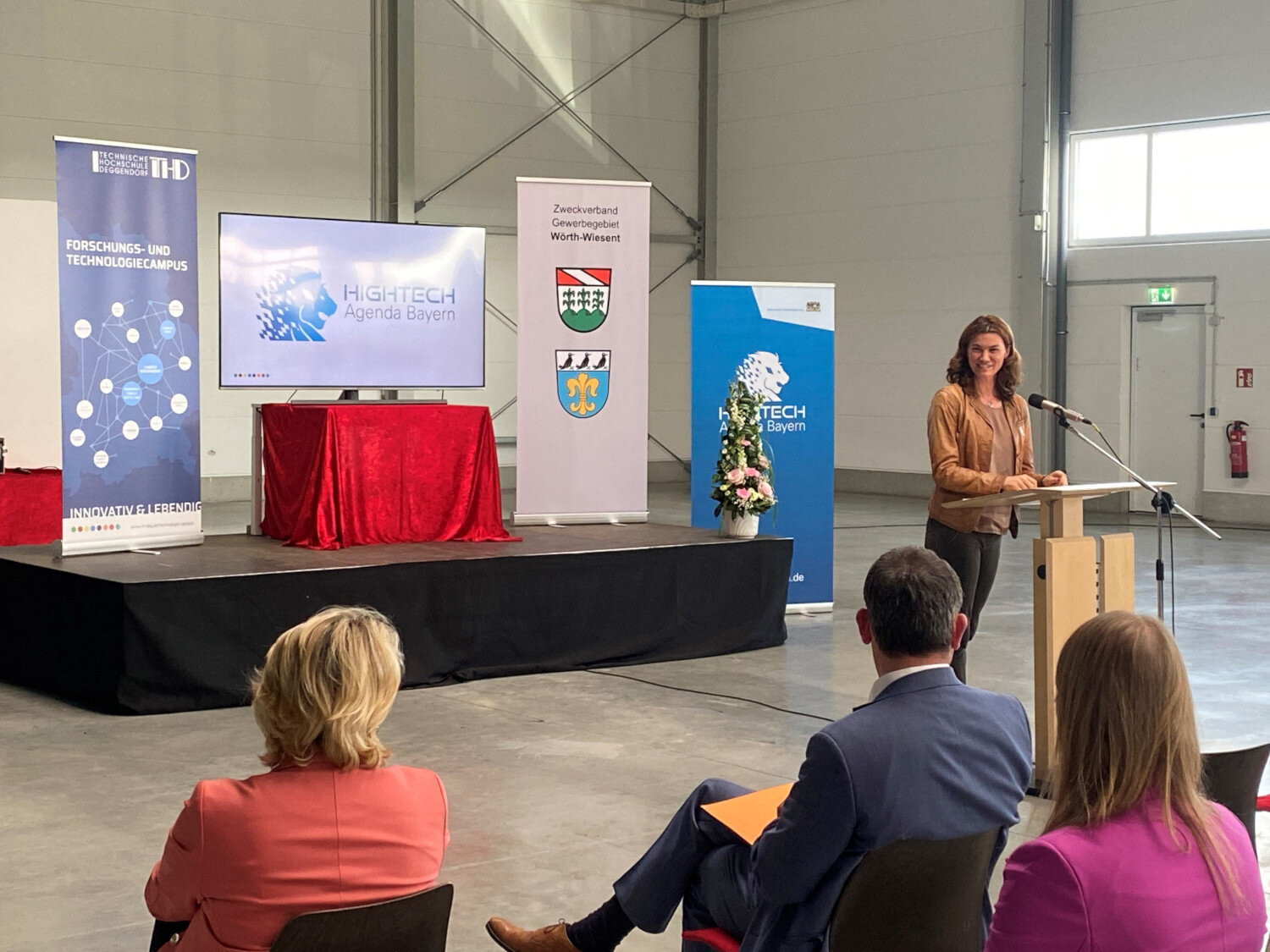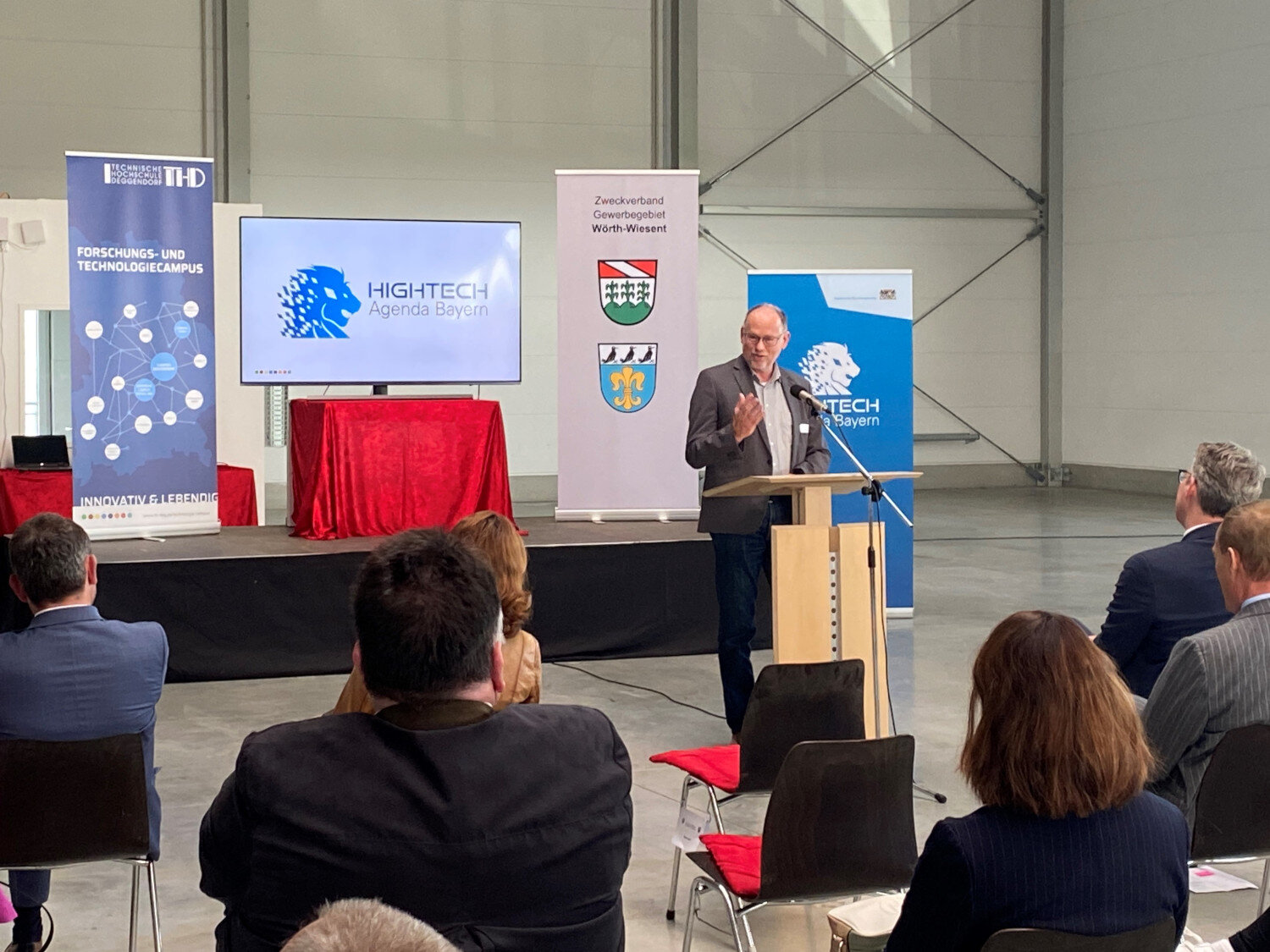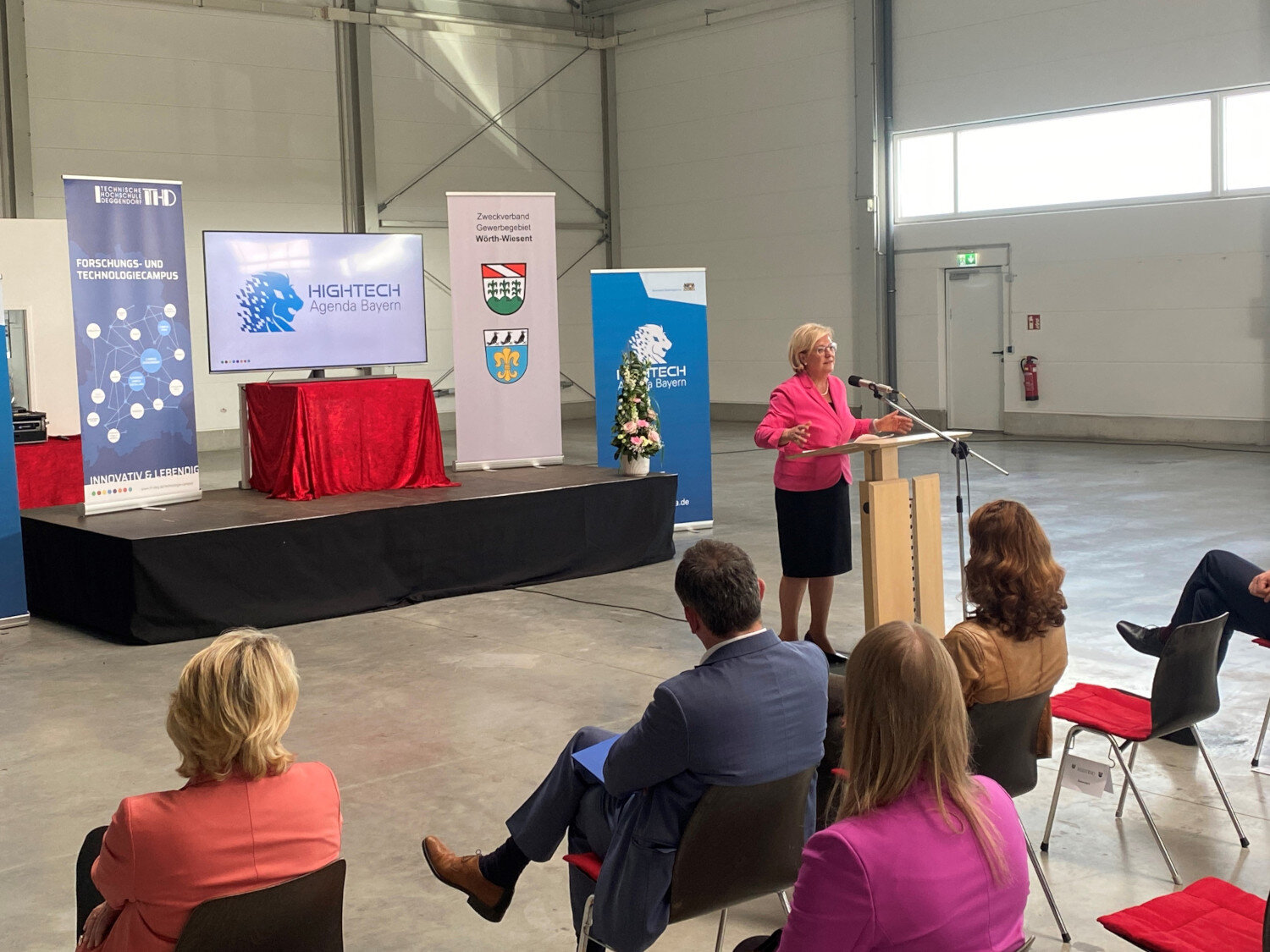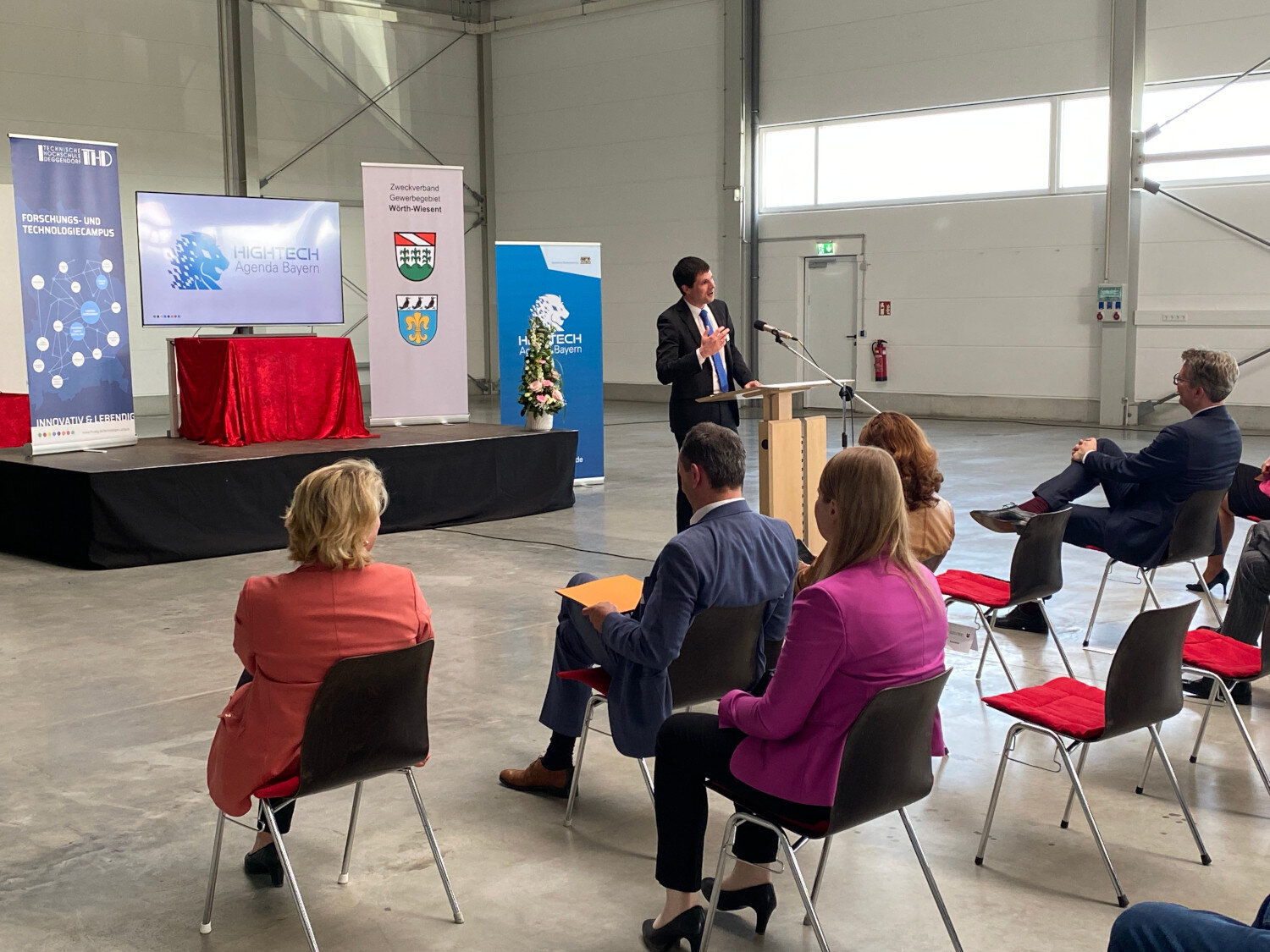research at dit
pioneering & Vibrant
about the Campus Wörth-Wiesent
Green hydrogen is a central energy carrier for the climate-neutral future. Basic technical solutions in the field of hydrogen are known, but comprehensive integration into economic processes remains a challenge.
As a research facility of the Deggendorf Institute of Technology, the Technology Campus Wörth-Wiesent supports commercial enterprises in integrating hydrogen technologies into existing processes and jointly develops individual solutions for future-oriented issues. One area of application is heavy goods transport, whose conversion to renewable drive concepts is of particular importance due to the constantly increasing demand for transport.
With our three main research areas of power electronics, electrolysis and fuel cell technology, as well as process and systems technology, we cover the entire hydrogen value chain in an interdisciplinary manner. Together with the OTH Regensburg, we pool our experience and knowledge in the field of water technologies and, together with the Hydrogen Centre Kelheim (WTZ Kelheim), form the Danube Hydrogen Cluster.
The Technology Campus Wörth-Wiesent is currently under construction. Would you like to be part of actively shaping the future of hydrogen use and heavy-duty transport? Please feel free to contact us.
expertise
The research area for electrolysis and fuel cell technology is currently being established.
Hydrogen electrolysis is the conversion of electrical energy into chemical energy. Fuel cell technology represents the reverse process, i.e. the conversion of chemical energy into electrical energy.
The basic goals here are:
- Increasing the conversion efficiency between chemical and electrical energy (both directions) in order to require less green electricity for the same drive energy in heavy-duty transport.
- Increasing the power density, and thus reducing the size of the components
- Reduction of rare and expensive raw materials such as platinum and palladium
- Increased service life with reduced necessary hydrogen quality
In power electronics, the focus is on increasing the efficiency of current and voltage conversion between a green electricity source and water electrolysis as well as a fuel cell and a mechanical drive system. Power electronics acts as a link between the green power source and the electrolyser as well as the fuel cells and the drive motor.
- Harnessing and storing "leftover" electricity in the form of hydrogen, i.e. green electricity that would otherwise be lost by shutting down the plants in the event of oversupply
- Reducing the economic threshold for storing surplus electricity through more efficient and cheaper DC/DC converters to alkaline electrolysers
- Coupling energy storage and energy grids such as traction power grids, public distribution grids and local intra-company DC grids
- Development of direct current (DC) grids in large solar parks for efficient direct conversion of direct current into hydrogen
- Development of high-temperature resistant power electronics based on silicon carbide in order to be able to use high-temperature fuel cells in mobile applications.
- Development of motor inverters with a wide input voltage range in order to be able to dispense with the additional DC converter that has been customary in fuel cell systems up to now.
- Expansion of grid-connected electrolysers to include a function for active compensation of reactive power, so that such systems can be used to relieve the load on the power grid.
- Modular design of power electronics for fuel cell systems in order to be able to realise fluctuating hydrogen production without efficiency losses.
The research area for process and systems engineering is currently being established.
In order to build complete fuel cell systems, the entire system is considered in addition to optimising the individual components. In addition to the interaction of the individual components, safety technology, standardisation and the use of fuel cells and electrolyser systems in special applications are also considered.
By focusing on process and system technology, complete fuel cell systems can be offered to customers and research partners. This makes innovative retrofit solutions in existing systems possible, as well as supplier solutions developed specifically according to customer requirements. Furthermore, companies in the region can be advised and trained in the implementation of hydrogen systems.
Research areas in process and systems engineering are:
- Large-scale storage and use of hydrogen in elemental and chemically bonded form
- Mobile charging stations for electric vehicles, which can be refuelled with hydrogen and thus accelerate the market ramp-up of electric vehicles and electric trucks
- Grid support of overhead line systems and distribution lines through transportable, grid-connectable fuel cell systems
- Linking goods train infrastructure with hydrogen through sector coupling between rail and road freight transport
- System qualification and testing for fuel cell systems with regard to dynamics and conversion efficiency
- Failure analysis and improvement of repair options for fuel cell systems through modular subsystems
- Fuel cell systems for military transport tasks (lower noise and heat signature for better camouflage)
- Electrolysis systems for the reduction of CO2 from the atmosphere for effective removal and reconversion of greenhouse gases
- Development of utilisation possibilities of waste hydrogen from the semiconductor and electrolysis industry
cooperations & projects
European cutting-edge technology is characterised by intensive cooperation between industry and universities and institutes.
We support you in publicly funded research projects - from idea development and application to the final report, and also carry out individual service and contract research projects for you.
Our team will be happy to answer all your research and development questions.
news
directions & contact
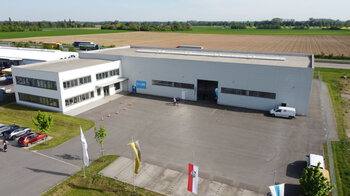
Deggendorf Institute of Technology
Technology Campus Wörth-Wiesent
Gewerbepark B 7
93086 Wörth a.d. Donau
Germany
Operational management
Christian Kaiser
Assistant
Benjamin Begander
